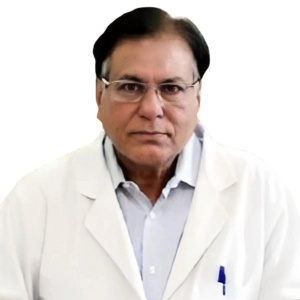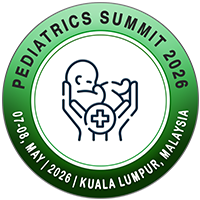
M M A Faridi
Era University, IndiaPresentation Title:
Prevention of vitamin D deficiency in infants and young children: Supplement vitamin D to infants or their mothers- A paradigm shift
Abstract
Vitamin D is the pivotal nutrient responsible for the maintenance of skeletal health at all stages of human life, from womb to tomb. It also plays an important role in the modulation of the immunological system and its association has been reported in several non-communicable diseases. Vitamin D insufficiency/deficiency has assumed global public health proportions and no race, age, gender, skin color, region, or climate are left unscathed by hypovitaminosis D.
Vitamin D deficiency is reported in a large number of pregnant and lactating women (50%-87%) around the world. A newborn infant is born with a vitamin D endowment, acquired during the fetal life, in direct proportion to the maternal vitamin D stores that is also reflected on the breast milk contents. The 25(OH)D concentration is insufficient/ deficient in the cord blood if pregnant women are suffering from hypovitaminosis D. The exclusively breastfed infant gets vitamin D from the breast milk and sun exposure, which is not sufficient anyway, and together with a poor fetal endowment, is prone to develop nutritional rickets and other morbidity.
American Academy of Pediatrics recommends 400 IU vitamin D supplementation to all exclusively breastfed infants from birth to one year of age. However, acceptability, compliance, overdose, hypercalcemia and lack of studies on the safety of the long term vitamin D supplementation remain valid concerns. This approach also ignores consequences of the vitamin deficiency to the mother. World Health Organization and UNICEF do not advocate vitamin D supplementation to the exclusively breastfed infants.
Currently a lot of evidence has been generated after the randomized controlled clinical trials that maternal vitamin D administration during lactation benefits both the infants and their mothers. Many Systematic and Cochrane Reviews endorse that vitamin D supplementation to the lactating women prevents insufficiency/deficiency of the vitamin D and nutritional rickets in the infants and is safe. At the same time it improves the 25(OH)D levels of the mothers.
In conclusion, it may be recommended that a new approach is required to maintain the vitamin D status of exclusively breastfed infants and their mothers. Instead of the infants vitamin D supplementation should be given to lactating women which is safe, feasible, and more rewarding.
Biography
M.M.A. Faridi MD, DCH, having advanced training in Neonatology from the University of Illinois Chicago, USA, is Dean Emeritus, Faculty of Medicine, Era University, Lucknow, India. Decorated with the State Award by the Government of Delhi, Dr. Faridi is a former Director-Professor and Head, the Department of Pediatrics, at the University College of Medical Sciences Delhi. He is a Visiting Professor at BP Koirala Institute of Health Sciences, Nepal; American University of Barbados School of Medicine, Barbados and Andijan State Medical Institute, Uzbekistan.
He edited two textbooks, written several chapters, and published 215 articles in reputed national and international journals. Credited with >3900 citations, his papers have been read by >70500 scientists world over. Several of his published articles are included in the Systematic and Cochrane Reviews. His h-index is 36 and his Research Interest Score is >95% ResearchGate members. He has guided more than 100 postgraduate students for theses research work.
He immensely contributed to developing the training tools for IYCF Counseling Course and is actively doing research on hypovitaminosis D in infants. He is a reviewer to 25 International and National journals and an Associate Editor, of Human Vaccine & Immunotherapeutics. He has several orations and fellowships to his credit.

